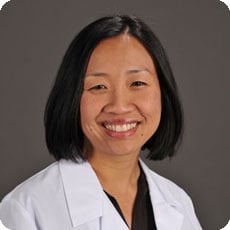Preventive Care in Pediatrics
 As pediatricians, we are well positioned to impact the future health and well-being of our patients. We do this with vaccines, health maintenance and anticipatory guidance.
As pediatricians, we are well positioned to impact the future health and well-being of our patients. We do this with vaccines, health maintenance and anticipatory guidance.
Anticipatory guidance – what does it mean to me? It means I am telling parents something important on the front end that prevents them from suffering terribly on the back end. It means that I can prevent problems before they start. It means saving health care dollars. In many cases, it means saving lives. In some cases, it just means saving headaches for you and for families.
1. Discuss sick contact precautions and Tdap for adult caregivers in the hospital when rounding on the newborns. This prevents
a. Serious illness in a newborn
b. That tearful trip to be admitted for a full sepsis evaluation
2. Discuss safe sleep recommendations in the hospital. This prevents:
a.You having to work hard later to break bad habits
b.The tragedy of sudden unexpected infant death
3. Start babies on supervised tummy time right after birth. This prevents:
a. Flat heads that cause anxiety and referrals for treatment.
4. Educate families in the neonatal period regarding infant sleep cycles and the need to put them down awake and allow them the opportunity to settle themselves back down when waking. This prevents:
a. Countless hours of sleep counseling the remainder of well child visits
b. Tired and frustrated families
c.Fussy babies who don’t sleep well even into toddler years
5. Discuss the normal reflux symptoms and gassy baby symptoms of newborns. This prevents:
a. Treatment of normal reflux symptoms with medications that aren’t necessary
b. Abundant phone calls to your clinical staff
c .Concerned and worried parents
6. Advise washing with baby soap and water for soiled diapers if families are at home. Patting dry or a minute or two of airing out the diaper area and then application of Vaseline petroleum jelly. This prevents:
a.The inevitable diaper rash that occurs in newborns who have frequent stools
7. Advise use of a barrier cream (diaper cream) or ointment (Vaseline petroleum jelly is so cheap) anytime patients are prescribed antibiotics. This prevents
a.Return visit in 5-10 days for a severe diaper rash
8. Advise starting a probiotic when prescribing antibiotics. This prevents:
a.Mistaken concern for a drug allergy
b.GI distress in a patient who is already ill.
9. Advise to begin weaning pacifier and bottle between 9-12 months. This prevents:
a.The 2 year old walking around your office with a pacifier
b.Parental distress about getting rid of that pacifier or bottle.
10. Advise parents to let kids pay attention to their own satiety cues. Discuss normal appetite slumps. This prevents:
a.Obesity
b.Food aversions and anxiety at mealtime.
11. Advise that as soon as children start riding anything – scooter, tricycle, balance bike – that they get in the habit of wearing a helmet. This prevents:
a.Arguments with a 7 year old to wear his helmet
b.Serious head injury
12. Advise that electronics stay out of the bedroom from the beginning. This prevents:
a.Depression, anxiety, sleep problems and school performance problems
b.Trying to remove electronics from the bedroom once this habit is already established.
13. Educate regarding dental care and provide resources to establish a medical home between 6-12 months of age. This prevents:
a.Dental caries
b.You having to do pre op dental visits
c.Dental surgery and anesthesia
14. Advise a healthy diet from the beginning. This prevents:
a.Diabetes, heart disease and the many burdens of obesity
b.Excess time discussing picky eating
15. Advise early peanut introduction. This decreases risk for:
a.Peanut allergy
b.The burden of carrying an epipen
c.Risk for anaphylaxis and death
Prevention must be our focus in medicine. When I get a baby or child I haven’t doctored since birth, and I have to refer for plagiocephaly or spend extra time discussing diet or sleep, I see that I have really saved myself time and helped families by taking the extra few minutes to discuss the easy ways to prevent problems and disease.
Aren’t we so well positioned as pediatricians to make a difference?
About the Author
 Kim Mangham, M.D., is a Cook Children's pediatrician at 1601 Keller Parkway in Keller, Texas. She earned her medical degree at University of Texas Southwestern Medical School in Dallas. She completed the pediatric residency program at University of Oklahoma Health Sciences Center in Oklahoma City. Her interests include breastfeeding education as well as disease and injury prevention. Dr. Mangham is board certified in pediatrics.
Kim Mangham, M.D., is a Cook Children's pediatrician at 1601 Keller Parkway in Keller, Texas. She earned her medical degree at University of Texas Southwestern Medical School in Dallas. She completed the pediatric residency program at University of Oklahoma Health Sciences Center in Oklahoma City. Her interests include breastfeeding education as well as disease and injury prevention. Dr. Mangham is board certified in pediatrics.